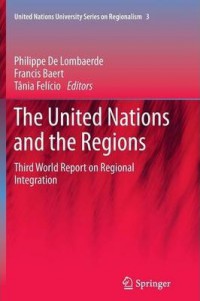UN System-Wide Coherence and the Regions: The Quest for Reforms

Roughly since 1997, the United Nations (UN) has struck a remarkable accommodation between far-reaching initiatives to reform its operational activities, supported by those inclined for more radical changes, and an incremental-steps approach which seems to be now growing in popularity among its membership. But, though most states agreed on the need to improve the overall coherence of the UN system, the debate has revealed steep default lines crossing the agenda. Positions vary significantly on the link between core normative and operational roles of the UN in the development, humanitarian and environment fields, on the mainstreaming of cross-cutting issues (human rights, gender and sustainable development) and, more prominently, on the governance of these activities. Roughly since 1997,1 the United Nations (UN) has struck a remarkable accommodation between far-reaching initiatives to reform its operational activities, supported by those inclined for more radical changes, and an incremental-steps approach which seems to be now growing in popularity among its membership. But, though most states agreed on the need to improve the overall coherence of the UN system, the debate has revealed steep default lines crossing the agenda. Positions vary significantly on the link between core normative and operational roles of the UN in the development, humanitarian and environment fields, on the mainstreaming of cross-cutting issues (human rights, gender and sustainable development) and, more prominently, on the governance of these activities.
